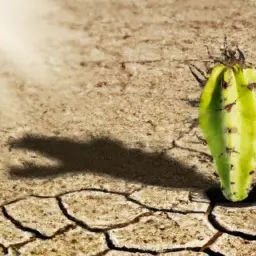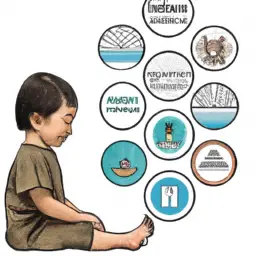Do you ever feel like giving up when faced with challenges or setbacks? Do you wish you had more perseverance and resilience in achieving your goals? This is where the concept of grit comes in.
Grit refers to the ability to persevere and maintain passion and effort towards long-term goals, even in the face of adversity. Grit has become a popular topic in psychology and self-help literature, as it has been found to be a key predictor of success in various domains, such as academics, sports, and business.
But what exactly is grit, and how can you develop and strengthen it? In this article, we will explore the science behind grit and its significance, the psychology of grit, the factors that contribute to grit, and practical tips for developing and applying grit in real life.
Key Takeaways
- Grit refers to the ability to persevere and maintain passion and effort towards long-term goals.
- Grit can be developed through practice and effort, and resilience training can be helpful in cultivating a gritty mindset.
- External factors, such as supportive relationships, access to resources, and opportunities for growth, can also contribute to the development of grit.
- Consistency and persistence are crucial in building grit and achieving long-term success.
Defining Grit and Its Significance
Grit is not just about persistence, it’s about having the passion and perseverance to achieve long-term goals. The power of resilience and cultivating determination are key elements in understanding the significance of grit.
Resilience is the ability to bounce back from setbacks and failures, while determination is the drive to keep going despite obstacles and challenges. People with grit have a deep sense of purpose and are willing to put in the hard work to accomplish their goals.
They don’t give up easily and are able to stay motivated even when things get tough. Grit is not something that comes naturally to everyone, but it can be developed through practice and effort. By cultivating a growth mindset and focusing on the process rather than the outcome, anyone can develop the grit needed to achieve their dreams.
The Psychology of Grit
You may feel like giving up when faced with challenges, but it’s important to remember that pushing through adversity can lead to personal growth and success. This is where having a gritty mindset comes in.
Grit is the combination of passion and perseverance towards long-term goals, and according to research, it’s a key predictor of success. To cultivate a gritty mindset, resilience training can be helpful.
This type of training focuses on developing coping strategies to bounce back from setbacks and challenges. It involves acknowledging and accepting difficult emotions, seeking support from others, and reframing negative thoughts into more positive ones.
By building resilience and maintaining a gritty mindset, individuals are better equipped to overcome obstacles and achieve their goals.
Factors That Contribute to Grit
One factor that plays a role in developing a gritty mindset is having a strong sense of purpose or passion. When you have a clear understanding of what you want to achieve and why it matters to you, it becomes easier to stay motivated and persevere through challenges.
This sense of purpose can come from a variety of sources, such as personal values, meaningful relationships, or a desire to make a positive impact on the world. Personality traits also play a role in developing grit.
People who are naturally more resilient, optimistic, and self-disciplined tend to be better equipped to handle setbacks and stay focused on their goals. However, it’s important to note that grit can also be developed and strengthened over time through deliberate practice and effort.
External factors, such as supportive relationships, access to resources, and opportunities for growth, can also contribute to the development of grit. By cultivating these factors and actively working to develop a gritty mindset, you can increase your chances of achieving long-term success and fulfillment.
Developing Grit
Developing grit is something that can be achieved through deliberate effort and practice. One way to develop grit is by setting specific and challenging goals. Goal setting helps you to focus on what you want to achieve and gives you a clear direction to work towards. When setting goals, it’s important to make them realistic but also challenging enough to push you out of your comfort zone. This way, you’ll develop the resilience and determination needed to overcome obstacles and stay committed to your goals.
Another way to develop grit is through mindfulness. Mindfulness is the practice of being present and fully engaged in the present moment. It helps you to stay focused on the task at hand, rather than getting distracted by external stimuli or negative thoughts. By practicing mindfulness, you can train your mind to stay calm and focused in the face of adversity. This can help you to develop the mental toughness needed to overcome setbacks and stay committed to your long-term goals.
Ultimately, developing grit requires a combination of goal setting, deliberate practice, and mindfulness. By incorporating these practices into your daily routine, you can build the resilience and determination needed to achieve your biggest goals.
Strengthening Grit
If you want to strengthen your grit, there are a few key things you can focus on.
Firstly, consistency and persistence are crucial – you need to keep pushing yourself even when things get tough.
Secondly, building a support network can help you stay motivated and on track during difficult times.
And finally, don’t forget to practice self-care – taking care of yourself physically and mentally is essential for maintaining resilience and persistence in the long term.
Consistency and Persistence
Consistency and persistence are key components in achieving long-term success, as evidenced by research on the psychology of grit. Daily habits and mental toughness are essential in building grit and achieving one’s goals. By consistently practicing good habits and overcoming obstacles, you are building resilience and endurance to keep pushing forward.
One way to practice consistency and persistence is to establish a routine and stick to it. This could include setting aside a specific time each day to work towards your goals, whether it be exercising, studying, or practicing a skill. It’s important to also acknowledge that setbacks and obstacles will occur, but it’s how you respond to them that matters. By maintaining a positive outlook and being persistent in the face of challenges, you can continue to build your grit and achieve long-term success.
| Daily Habits | Overcoming Obstacles | Mental Toughness | Resilience |
|---|---|---|---|
| Consistent exercise | Problem-solving skills | Positive self-talk | Adaptability |
| Time management | Flexibility | Goal-setting | Ability to bounce back |
| Practice self-care | Perseverance | Acceptance of failure | Persistence |
| Continuous learning | Open-mindedness | Focus and concentration | Endurance |
Building a Support Network
Connecting with others who share your goals and values can be a powerful way to find motivation and overcome obstacles. When you have a support network, you have people who understand what you’re going through and can offer encouragement and advice. This can make a big difference when you’re facing challenges or feeling discouraged.
Building a support network doesn’t have to be complicated. Start by reaching out to people who are pursuing similar goals or who share your interests. Join a group or club, attend networking events, or even connect with people online through social media or forums.
Remember, having a support network isn’t just about getting help from others, it’s also about offering support to those in your network. By helping others, you’ll not only feel good about yourself, but you’ll also strengthen your relationships and build a stronger support system.
Practicing Self-Care
Taking care of yourself is essential for maintaining your well-being and achieving your goals, so it’s important to prioritize self-care practices in your daily routine.
Here are some self-care techniques that you can integrate into your daily routine:
-
Self-reflection techniques: Take some time each day to reflect on your thoughts and feelings. Write them down in a journal or talk to a trusted friend about them. This can help you gain clarity and perspective on your life and improve your emotional well-being.
-
Coping mechanisms: Life can be stressful, so it’s important to have healthy coping mechanisms in place. Try engaging in activities that you enjoy, such as listening to music or going for a walk. You can also practice deep breathing exercises or meditation to help calm your mind and reduce stress.
-
Relaxation techniques: Make time for activities that help you relax and recharge, such as taking a warm bath or practicing yoga. These activities can help reduce stress and improve your overall well-being.
-
Setting boundaries: It’s important to set boundaries with others to avoid feeling overwhelmed or burnt out. Communicate your needs and limits to others and learn to say no when necessary. This can help you maintain a healthy balance in your life.
By incorporating these self-care techniques into your daily routine, you can improve your well-being and increase your resilience in the face of challenges.
Applying Grit in Real Life
Want to achieve your goals and succeed in life? Embracing grit and pushing through challenges is key!
Applying grit in real life means overcoming obstacles and setting achievable goals. It means committing to the process and persevering through setbacks.
To apply grit in real life, start by identifying your goals. What do you want to achieve? What steps can you take to get there?
Once you have a clear vision and plan in place, it’s time to put in the work. Be prepared to face challenges and setbacks along the way, but don’t let them discourage you. Instead, view them as opportunities for growth and learning.
Remember, grit is not about being perfect or never making mistakes. It’s about having the perseverance and determination to keep going, even when things get tough.
So, embrace the challenges and keep pushing forward towards your goals.
Frequently Asked Questions
Can grit be developed at any age or is it more difficult to develop in adulthood?
Yes, grit can be developed at any age, but it may be more difficult in adulthood due to established habits and beliefs.
Developing grit can bring numerous benefits, such as increased resilience, perseverance, and achievement. However, there are also challenges to developing grit, including the need for sustained effort and the possibility of burnout.
Grit in the workplace can be cultivated using strategies such as goal-setting, feedback, and support from colleagues. The impacts of grit in the workplace can include increased job satisfaction, productivity, and overall success.
So, while developing grit may require effort and commitment, the benefits can be significant.
Are there any negative effects of having too much grit?
Having too much grit can potentially lead to some drawbacks. While grit is generally seen as a positive trait, excessive grit can cause individuals to become overly fixated on their goals and neglect other important aspects of their lives.
It can also lead to burnout and exhaustion, as individuals may push themselves too hard and not take adequate breaks. However, it’s important to note that managing excessive grit is possible.
It’s important to learn how to balance persistence and flexibility, and to take breaks when necessary. Additionally, having a support system can also help individuals manage their grit and avoid its potential negative effects.
How can individuals with mental health issues, such as depression or anxiety, develop grit?
If you’re struggling with mental health issues like depression or anxiety, developing grit may seem impossible. But it’s not.
The key is to shift your mindset. Instead of focusing on what you can’t do, start looking for what you can. Build coping mechanisms that help you deal with stress and anxiety.
Make a plan for how you’ll handle setbacks, and don’t give up when things get tough. Remember that grit isn’t about being perfect—it’s about persevering even when things are hard.
With the right mindset and coping strategies, you can develop the kind of grit that will help you succeed in life.
Is grit a fixed trait or can it fluctuate depending on the situation?
So, can grit be considered a fixed trait or does it vary depending on the situation?
Well, it’s a bit of both. The nature vs. nurture debate comes into play here. Some people may have a natural disposition towards being gritty, while others may have to work harder to develop it.
However, situational factors can also come into play. For example, you may have a lot of grit when it comes to your career, but struggle to apply that same level of determination to your personal life. Alternatively, a traumatic event could cause someone to suddenly develop a lot of grit in order to overcome it.
So, while grit may have some innate qualities, it can also be influenced by external factors.
How can parents and educators foster grit in children and students?
To foster grit in children and students, there are several parenting strategies and classroom techniques you can use.
As a parent, you can emphasize the importance of hard work and perseverance by praising your child’s efforts rather than their innate abilities. Encourage them to set challenging goals and help them break down those goals into achievable steps.
In the classroom, teachers can create a growth mindset by providing opportunities for students to learn from their mistakes and encouraging them to take risks. They can also use activities that promote problem-solving, critical thinking, and decision-making skills.
Additionally, teachers can model grit by sharing their own struggles and successes with their students.
By fostering grit, parents and educators can help children and students develop the resilience and perseverance needed to succeed in life.
Conclusion
Congratulations! You’ve just learned about the science behind grit and how it can help you achieve your goals.
Grit is defined as the combination of passion and perseverance, and it’s a crucial factor in achieving success. The psychology of grit involves understanding how our mindset, beliefs, and emotions affect our ability to persevere through challenges.
Factors that contribute to grit include having a growth mindset, setting achievable goals, and having a supportive environment. Developing grit involves cultivating a sense of purpose, practicing self-discipline, and learning from failure.
Strengthening grit involves building resilience, staying motivated, and seeking feedback. Applying grit in real life means setting challenging goals, staying focused, and persevering through obstacles.
Remember, grit is not just about talent or intelligence, but about the willingness to work hard and persevere through challenges. By understanding the psychology of grit and developing this trait, you can achieve your goals and overcome any obstacles that come your way.
So, keep pushing forward and never give up on your dreams!


















































































































